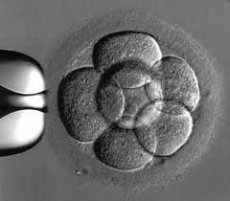Medical expert of the article
New publications
Stem cell therapy is effective in treating heart failure
Last reviewed: 01.07.2025

All iLive content is medically reviewed or fact checked to ensure as much factual accuracy as possible.
We have strict sourcing guidelines and only link to reputable media sites, academic research institutions and, whenever possible, medically peer reviewed studies. Note that the numbers in parentheses ([1], [2], etc.) are clickable links to these studies.
If you feel that any of our content is inaccurate, out-of-date, or otherwise questionable, please select it and press Ctrl + Enter.

Stem cell therapy in the treatment of patients with class III and IV heart failure has shown good promise in preventing serious complications and death.
Australian company Mesoblast Ltd said stem cell therapy had proven safe in treating heart failure and was able to reduce the risk of serious complications such as heart attack and sudden cardiac death by 78% over one year compared with patients who received standard treatment.
The results of the study, which involved 60 patients, were presented at the American Heart Association conference in Orlando.
"It's extremely surprising and really incredible that this therapy was able to reduce the risk of death and serious complications of heart failure over a three-year follow-up period," said Dr. Emerson Perin, the study's author and a member of the Texas A&M Institute in Houston.
"If the results demonstrate the effectiveness of the treatment in a larger study, we think we have every chance of getting stem cell therapy approved at the legislative level," Perin said.
Mesoblast and its partner Teva Pharmaceutical Industries plan to begin enrolling patients in a Phase III clinical trial in the first half of next year.
Safety is the main goal of this study. No side effects from stem cell treatment were reported during the entire study, Mesoblast officials say.
How did the stem cell treatment go?
Researchers have been studying stem cells from numerous sources for more than a decade with the hope that their ability to turn into a wide variety of other cell types could help treat many types of diseases, from spinal cord injuries to heart disease.
Mesoblast uses bone marrow- derived stem cells, known as mesenchymal progenitor cells. The cells are delivered directly to the heart via a catheter, where they stimulate the growth of blood vessels.
Since the cells are extracted from an unrelated donor, patients must be screened to ensure that they do not produce antibodies to the transplants.
None of the heart failure patients who received the cells developed hypersensitivity or significant levels of antibodies to the cells, so no significant immune response was seen.
The patients in the study had moderate to severe heart failure, in which the heart muscle has a reduced ability to pump blood. The ejection fraction was less than 40%, while in a healthy person it should be more than 55%.
The stem cell treatment did not result in a significant improvement in ejection fraction, but there was a trend toward improvement in the six-minute walk test, a sign that patients were feeling better.
The scientists tested three doses, or concentrations, of cells — 25 million cells, 75 million cells and 150 million cells — in 15 patients in each group. The study also included 15 additional patients receiving standard heart failure treatments. Based on the results of the Phase II study, the companies said they expect to extend the trial to the 150 million cell dose.


 [
[